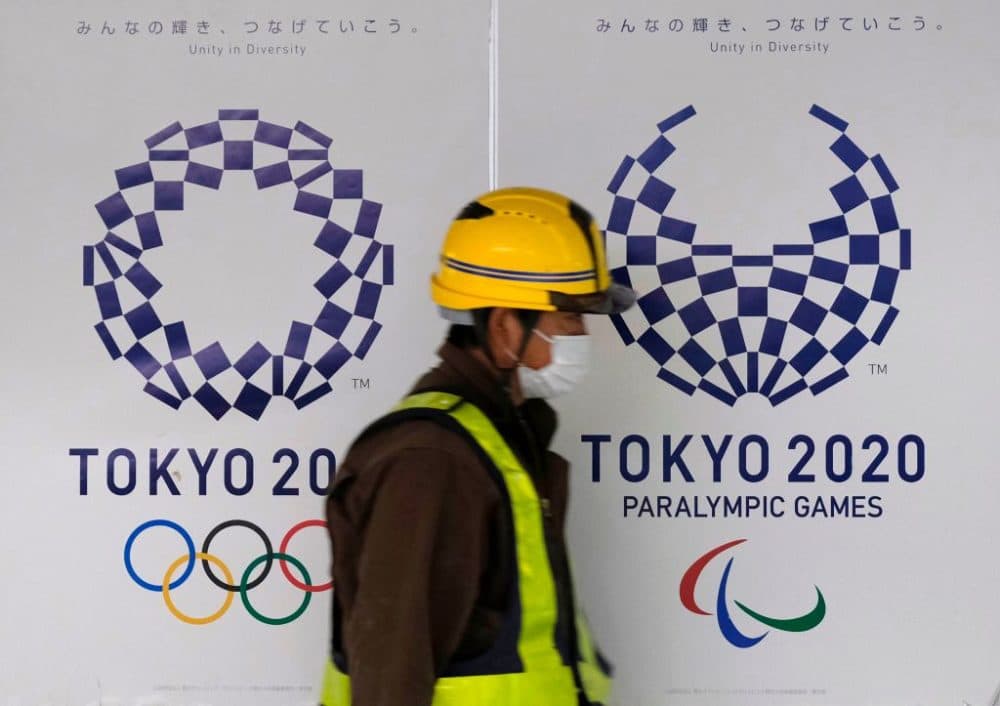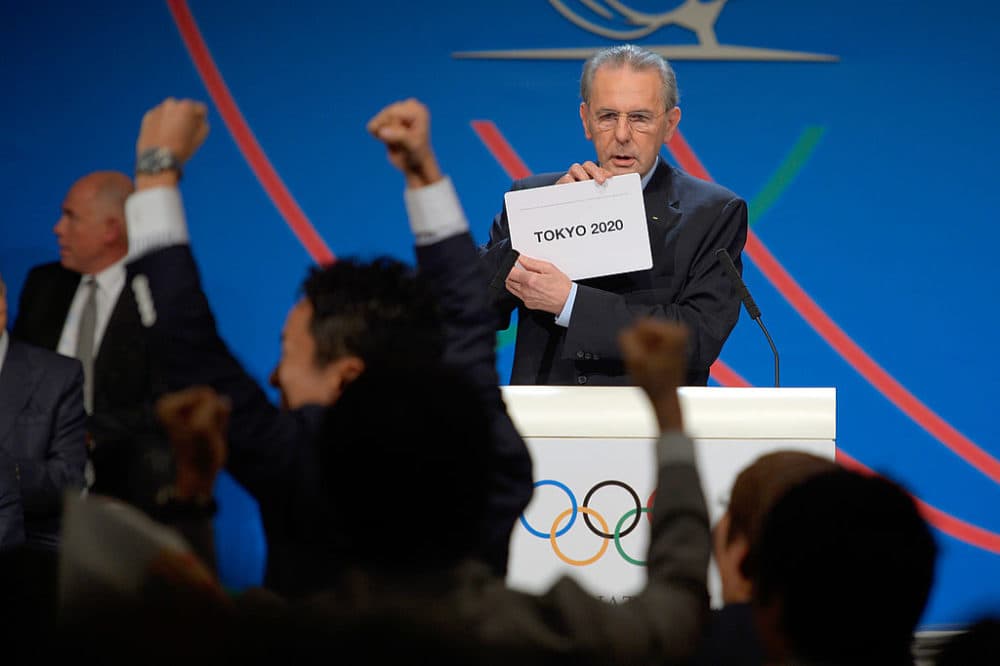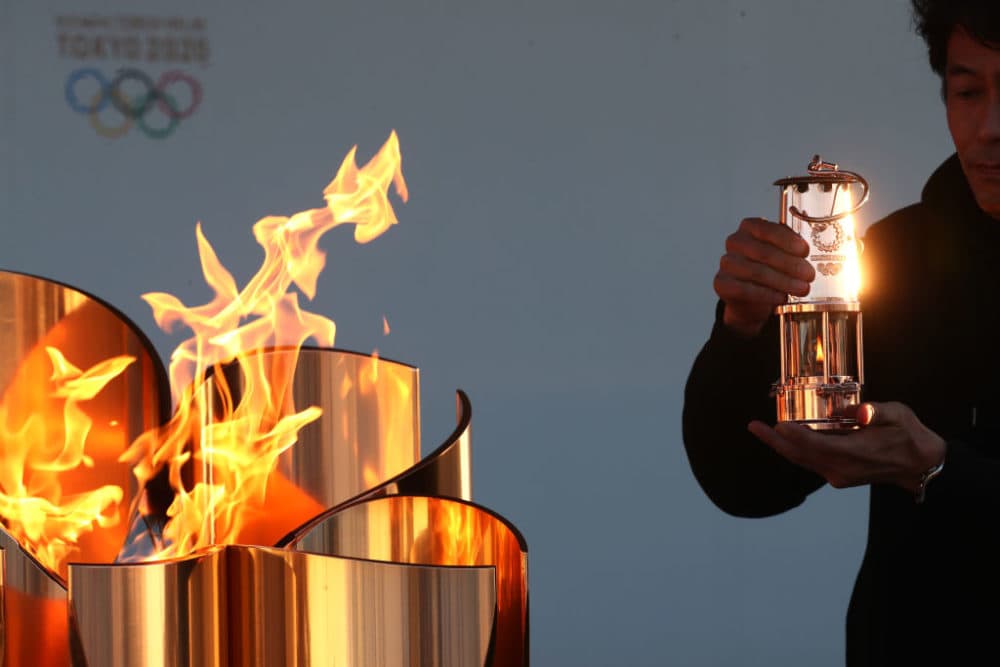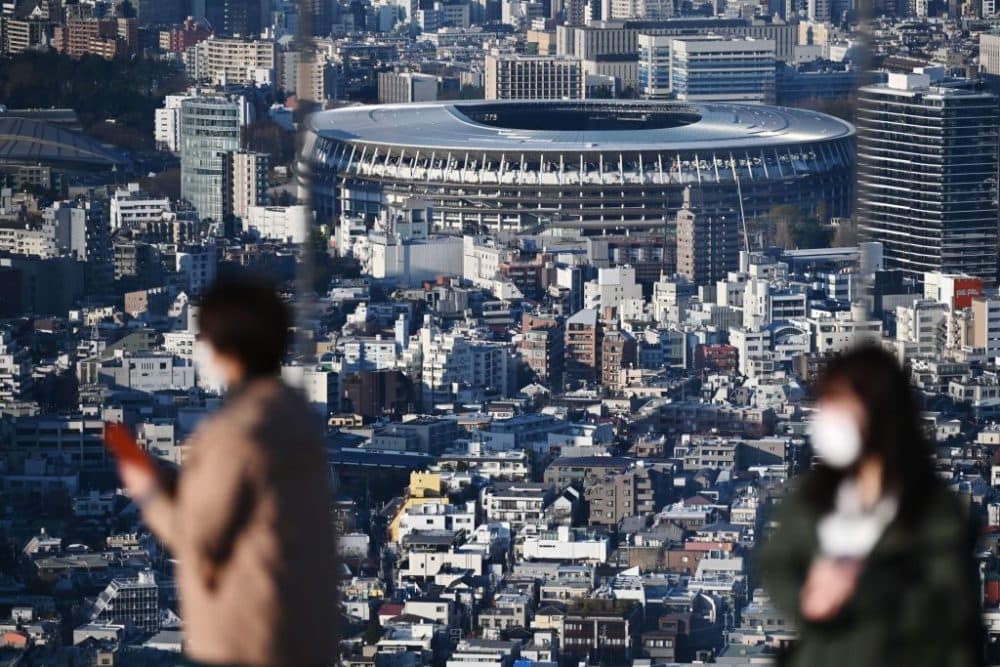Advertisement
The Economic Cost Of Postponing The Tokyo Olympics

There will be no Summer Olympics this July. The IOC announced Tuesday that, due to the coronavirus pandemic, the Tokyo Games will be postponed to 2021.
Athletes and fans are disappointed, of course, but this move will also have tremendous consequences for the economies of Tokyo and Japan.
Alastair Gale, The Wall Street Journal's Japan editor, joined us from Tokyo.
KG: So I actually want to start back in 2013. There were three finalists bidding to host the 2020 Summer Games: Istanbul, Madrid and Tokyo. Why was Tokyo bidding for the Games? And why, ultimately, do you think the IOC went with the city?
AG: It was pitched, really, as a chance for the country to recover from the disaster that we had here in 2011, when there was a massive earthquake and a tsunami which killed about 20,000 people. They wanted to give people something to look forward to.

And also, you know, Japan had the Olympics in 1964, and it has a lot of facilities already. So it showed that it was able to be a good host. It had a compelling story to tell. And I think that's really one of the major reasons why it was successful.
KG: So that was 2013. So, what's happened in the years since to get ready for the Games? And how much money has been spent?
AG: You know, it's been remarkably smooth. You know, often with Olympic build ups, you get stories of chaos and corruption, of facilities that are not going to be ready on time. But that really hasn't happened here in Japan. You know, it's been quite a smooth process. There are several new stadia and arenas that have been built. But all of that's gone very smoothly.
I mean, the budget has grown from the original plan of around $7 billion to at least double that, and perhaps more. So, you know, it's been costly, but it generally has had strong public support here. People were really looking forward to it.
KG: It really says something about the Olympic process that only a budget of double is totally normal. So what has it been like to watch as Tokyo continued to prepare for these Games even while this pandemic spread across the globe? I have to imagine it was somewhat surreal.
AG: "Surreal" is the right word. You know, we even had — the Olympic flame arrived here last week.

And I think there's a widespread relief here that, you know, this thing is not now hanging over the country, when the coronavirus situation here is actually getting worse. But there is a cost to keep things on hold for a year. And that amounts to a fair chunk of money, which, you know, is obviously not in the original budget and someone's going to have to pay for.
KG: And then there's also a cost for hotels and restaurants and other businesses that have been getting ready for this influx of visitors. What will this delay mean for them?
AG: Right. You know, they are the ones, I think, that are really going to be most hurt by this. And economic times are actually tough here in Japan, even without the coronavirus. You know, the economy is sort of close to a recession. So it's come at the worst possible time, really.
I mean, I think it's also important to say that the coronavirus is the big thing here in terms of what's hurting the economy and what's hurting these businesses. You know, the uncertainty is whether it will be OK next year.

KG: If these Games do keep getting postponed, who's on the hook for the cost of that? I mean, does the IOC kick in at all?
AG: Right. Well, that needs to be figured out from now on. There was a meeting with the organizing committee here in Tokyo, and, at the start of the meeting, the CEO on the committee said first thing we need to do is figure out exactly when the Olympics are going to be. Second thing we need to do is find out whether all the venues are going to be available for that new date. And then the third thing is, you know, figure out who's going to pay for all of this.
Given the state of the economy here, you know, the central government and the Tokyo government are not going to be wanting to have to pay a whole lot more. They're trying to sort of keep the economy afloat and deal with the virus.
KG: Perhaps it's silly to look for a silver lining in all of this. But aside from the obvious and huge potential public health benefits that come from postponing, are there any ways in which the Tokyo Games will actually be better because they were delayed for a year?
AG: Well, I think if we have come through the global health crisis of the coronavirus, you know, the Olympics can be somewhat of a sort of celebration of humanity overcoming the virus. I mean, that's what the prime minister has said he wants this Olympics to be remembered for. So best case scenario, that's what will happen.
Check out more of The Wall Street Journal's coverage of the Olympic postponement here.
This segment aired on March 28, 2020.
